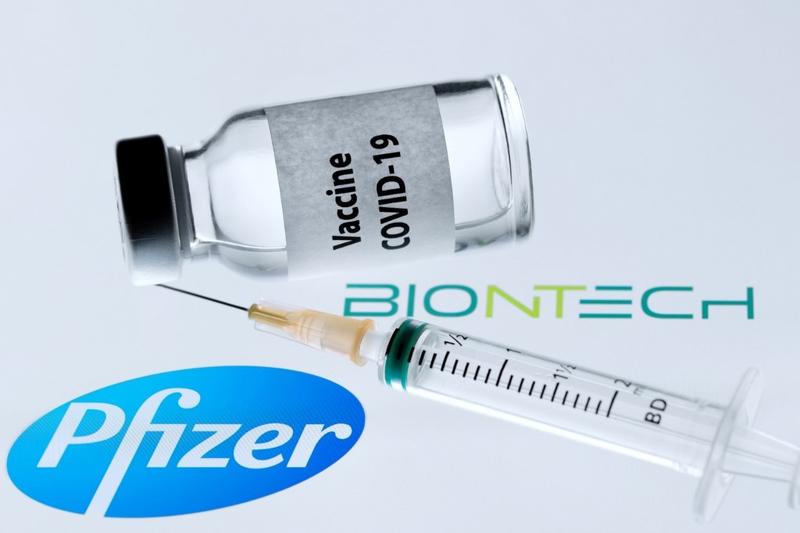 In this file photo a bottle reading "Vaccine COVID-19" next to US pharmaceutical company Pfizer and German biotechnology company BioNTech logos is viewed on Nov 23, 2020. (JOEL SAGET / AFP)
In this file photo a bottle reading "Vaccine COVID-19" next to US pharmaceutical company Pfizer and German biotechnology company BioNTech logos is viewed on Nov 23, 2020. (JOEL SAGET / AFP)
German biotechnology company CureVac has begun enrolling participants into late-stage trials for a COVID-19 candidate vaccine that remains stable at standard refrigeration temperature for three months.
The vaccine, which is called CVnCoV, uses similar messenger RNA technology to the treatments from Pfizer and Moderna, without posing the logistical challenge of ultracold storage temperatures.
The CureVac vaccine elicited a robust immune response in early trials, and newly announced Phase 2b/3 studies will test efficacy across 35,000 participants in Europe and Latin America.
"We have reached another important milestone in the development of our vaccine candidate," said Franz-Werner Haas, who is chief executive of CureVac.
ALSO READ: EU could pay over $10 billion for Pfizer, CureVac vaccines – source
The clinical safety and immunogenicity data achieved to date look promising and we are hopeful that this trial will continue to demonstrate the impact of mRNA technology and our vaccine to prevent COVID-19, and to help defeat this pandemic.
Franz-Werner Haas, chief executive of CureVac
"The clinical safety and immunogenicity data achieved to date look promising and we are hopeful that this trial will continue to demonstrate the impact of mRNA technology and our vaccine to prevent COVID-19, and to help defeat this pandemic."
In November, CureVac confirmed its treatment could be stored at 5 C for at least three months, and remained stable at room temperature for 24 hours.
The Tubingen-headquartered company has signed an agreement with the European Commission for 405 million doses of the inoculation. This represents the largest COVID-19 vaccine deal in Europe to date.
Eliciting immune response
While most conventional vaccines use weakened viral particles to elicit an immune response, CVnCoV uses messenger RNA to instruct the body itself to produce a specific protein found on the surface of the novel coronavirus.
This primes the immune system, allowing it to recognize and neutralize the virus if and when exposure occurs naturally.
Both the Pfizer and Moderna treatments use this messenger RNA technology, but these treatments need to be kept at well below freezing for long periods, presenting transport and storage difficulties for parts of the world without stable electricity and refrigeration.
"We are very encouraged by the emerging stability profile of our COVID-19 vaccine candidate compatible with standard fridge-temperature storage as well as a required room temperature application," said Florian von der Mulbe, chief production officer of CureVac.
The officer added: "This compatibility has the potential both to enable decentralized storage and to significantly facilitate large-scale vaccination efforts during the current pandemic."
Chinese vaccine makers have several vaccine candidates in the pipeline that do not require ultracold storage, and have already agreed to deliver tens of millions of doses to numerous nations around the globe.
READ MORE: Vaccines to HK by January at earliest
Contact the writer at angus@mail.chinadailyuk.com


